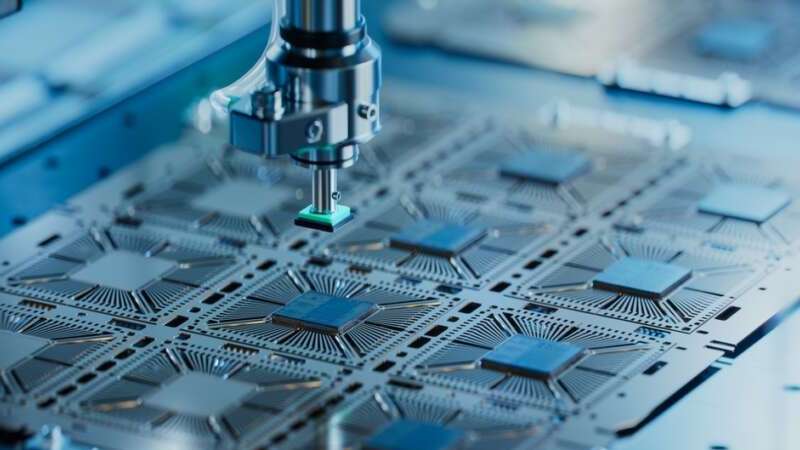
The National Institute of Standards and Technology (NIST) is creating a new CHIPS Manufacturing USA institute that will use digital twins approaches to greatly speed the development and validation of next-generation semiconductor manufacturing, advanced packaging, assembly, and test processes.
NIST said it expects to award up to $285 million in funding for a single institute award with a performance period of up to five years.
The agency has released a notice of funding opportunity for the project and is inviting industry to a May 8 briefing on the notice. NIST will follow up on May 16 with a one-day hybrid meeting for potential applicants for the funding opportunity.
Digital twins, NIST explained, “are virtual models that mimic the structure, context, and behavior of a physical counterpart.”
“Unlike traditional, physical research models, digital twins can exist in the cloud, which enables collaborative design and process development by engineers and researchers across the country, creating new opportunities for participation, speeding innovation, and reducing costs of research and development,” the agency said.
“Digital twin-based research can also leverage emerging technology like artificial intelligence to help accelerate the design of new U.S. chip development and manufacturing concepts and significantly reduce costs by improving capacity planning, production optimization, facility upgrades, and real-time process adjustments,” NIST said.
White House Office of Science and Technology Policy (OSTP) Director Arati Prabhakar explained during a call with reporters on Sunday that the creation of a U.S.-based digital twins manufacturing institute has the potential to greatly reduce the typically long lead times for designing semiconductors.
She said that use of digital twins approaches “can shrink from months to days” some aspects of chip design processes.
Prabhakar said that the Biden administration’s CHIPS and Science Act awards of funding to semiconductor manufacturers to subsidize chip-making operations in the U.S. is a vital step to making the U.S. less dependent on offshore producers and less exposed to semiconductor supply chain risks.
But while CHIPS and Science fundings aim to take those actions in the shorter term, she emphasized that “CHIPS R&D is how we win the future.”
“CHIPS R&D is about making sure American manufacturers can continue to succeed and thrive,” the OSTP director said. “Digital twin technology can accelerate the costly and time-consuming work to develop the next generation of robust manufacturing for this extraordinarily complicated product.”
“Digital twin technology can help to spark innovation in research, development, and manufacturing of semiconductors across the country – but only if we invest in America’s understanding and ability of this new technology,” said Commerce Secretary Gina Raimondo in a statement.
“This new Manufacturing USA institute will not only help to make America a leader in developing this new technology for the semiconductor industry, it will also help train the next generation of American workers and researchers to use digital twins for future advances in R&D and production of chips,” she said.
“Digital twin technology will help transform the semiconductor industry,” echoed NIST Director Laurie Locascio.
“This historic investment in the CHIPS Manufacturing USA institute will help unite the semiconductor industry to unlock the enormous potential of digital twin technology for breakthrough discoveries,” she said. “This is a prime example of how CHIPS for America is bringing research institutions and industry partners together in public private partnership to enable rapid adoption of innovations that will enhance domestic competitiveness for decades to come.”
A senior Biden administration official said on Sunday that NIST’s current thinking on the creation of the CHIPS Manufacturing USA institute contemplates two separate facilities that private sector businesses can leverage, but that the agency’s plans will also be shaped by what kind of response it receives to its notice of funding opportunity.
